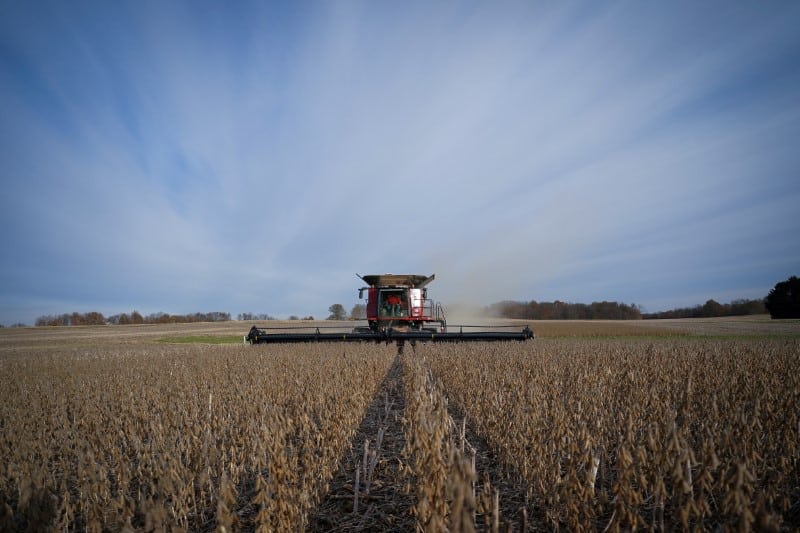The U.S. coronavirus stimulus bill would add $14 billion to the Agriculture Department’s Commodity Credit Corp spending authority, and authorize another $9.5 billion for U.S. farmers hurt by the fast-spreading pandemic, according to a copy of the bill’s text.
The $2 trillion bipartisan legislation, set for a Senate vote on Wednesday, is aimed at alleviating the devastating economic impact of the coronavirus pandemic.
The Commodity Credit Corp (CCC), set up during the Great Depression nearly a century ago, has been tapped by the Trump Administration for nearly $30 billion in recent years to compensate farmers and assist the sector due to the U.S.-China trade wars. The bill would bring the fiscal 2020 authority limit to $44 billion.
The additional $9.5 billion would be used to specifically assist livestock producers affected by the pandemic, such as cattle ranchers, and hog and dairy farmers.
Also eligible are fruit, vegetable and other so-called “specialty crop” producers, and those who sell through farmers markets and other local food systems that have been shuttered or economically impacted by the pandemic.
“We have already suffered losses due to COVID 19-related concerns. These new financial setbacks come on the heels of two very difficult years during which pork was at the tip of the trade retaliation spear,” said Howard “A.V.” Roth, a Wisconsin hog farmer and president of the National Pork Producers Council trade group.
Farm trade groups have been lobbying Congress and the Trump Administration in recent weeks for help, from getting financial aid for producers to trying to ensure seasonal workers from Mexico can get visas in time to pick fruits and vegetables ripening in the United States.
Last week, the National Cattlemen’s Beef Association (NCBA) sent a letter to lawmakers, saying cattle prices were falling as commodity prices plunged amid growing fears over the pandemic. They asked Congress to increase the CCC lending authority to $50 billion, and make sure cattle farms and ranchers would be paid as part of the stimulus bill.
“There were a lot of different groups that were needing assistance and worried about their individual industries, given what’s been unfolding,” said Ethan Lane, NCBA vice president of government affairs.
The additional spending authority to CCC, which was replenished already this fiscal year with the current federal budget, could open the door for the Agriculture Department to make a third round of Market Facilitation Program payments, or trade aid, this year.
(Reporting by P.J. Huffstutter. Additional reporting by Tom Polansek in Chicago.; Editing by Chris Reese, Richard Chang and Diane Craft)

























 Continue with Google
Continue with Google